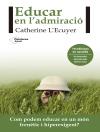Parents: does your child’s principal understand autism? School administrators: do you understand your students with autism? This can help! School administrators play a key role in creating a mind-set of acceptance of learners with special needs and their families within their school district, region, or school.
In many instances, a school administrator guides decisions regarding how teachers address behavioral challenges. The purpose of Special Considerations for Students with High-Functioning Autism Spectrum Disorder is to provide school administrators with useful and practical suggestions and strategies that can increase student achievement, engagement, positive behavior, and social skills for students on the spectrum, help reduce educator stress and frustration, and increase positive interactions between families and school personnel so that the school day is more successful for all parties.
Diane Adreon & Brenda Smith Myles
Special Considerations for Students with Autism [EPUB ebook]
A Guide for School Administrators
Special Considerations for Students with Autism [EPUB ebook]
A Guide for School Administrators
购买此电子书可免费获赠一本!
语言 英语 ● 格式 EPUB ● 网页 128 ● ISBN 9781957984582 ● 文件大小 13.0 MB ● 出版者 Future Horizons ● 市 San Juan Capistrano ● 国家 US ● 发布时间 2017 ● 下载 24 个月 ● 货币 EUR ● ID 9128053 ● 复制保护 无












